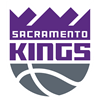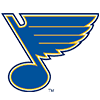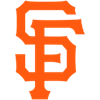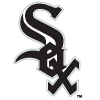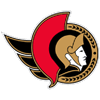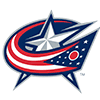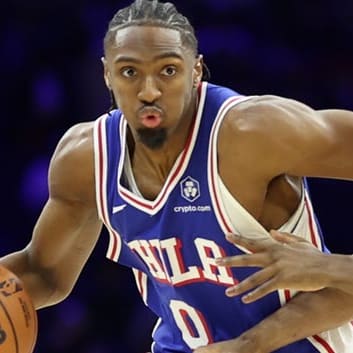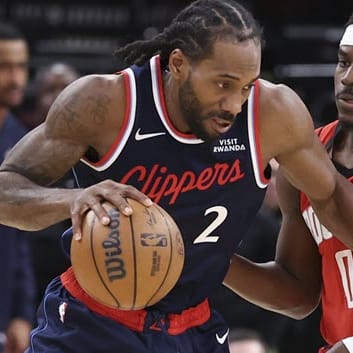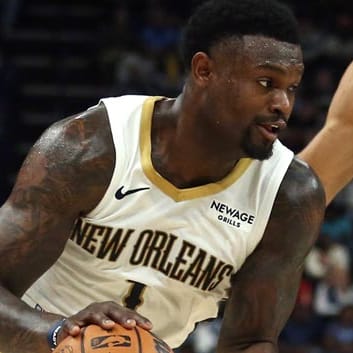In the 2013-14 NBA season, 25 different players were suspended by the NBA or their respective teams for a total of 58 games.1 These figures constitute an increase over the totals of the previous two seasons, as the NBA continues its crusade to clean up the league's perceived "image problem" that has plagued it since the second retirement of Michael Jordan in 1998. As a result, fantasy owners must now be aware of the NBA's stiff upper lip when it comes to its suspension policy for a multitude of transgressions.
1These figures include the 20-game suspension handed down to Nick Calathes on April 18, though most of which will be served to start the 2014-15 season.
While it's widely expected that commissioner Adam Silver will follow in the footsteps of his predecessor David Stern when it comes to player discipline, it's nearly impossible to stand here and project for how long and which players are likely to be slapped with a ban. You can't predict stupid. Therefore, this column hopes to shed light on why and for what reasons players can be suspended under league rules and under the collective bargaining agreement (CBA) signed in 2011 by the NBA and players' union, as well as identify which players may be at the highest risk for missing games in the upcoming 2014-15 NBA season. As famed philosopher and essayist George Santayana once said, "Those who cannot remember the past are condemned to repeat it."
OFF-COURT CONDUCT
Drug Policy
Current
In the 2013-14 NBA season, 25 different players were suspended by the NBA or their respective teams for a total of 58 games.1 These figures constitute an increase over the totals of the previous two seasons, as the NBA continues its crusade to clean up the league's perceived "image problem" that has plagued it since the second retirement of Michael Jordan in 1998. As a result, fantasy owners must now be aware of the NBA's stiff upper lip when it comes to its suspension policy for a multitude of transgressions.
1These figures include the 20-game suspension handed down to Nick Calathes on April 18, though most of which will be served to start the 2014-15 season.
While it's widely expected that commissioner Adam Silver will follow in the footsteps of his predecessor David Stern when it comes to player discipline, it's nearly impossible to stand here and project for how long and which players are likely to be slapped with a ban. You can't predict stupid. Therefore, this column hopes to shed light on why and for what reasons players can be suspended under league rules and under the collective bargaining agreement (CBA) signed in 2011 by the NBA and players' union, as well as identify which players may be at the highest risk for missing games in the upcoming 2014-15 NBA season. As famed philosopher and essayist George Santayana once said, "Those who cannot remember the past are condemned to repeat it."
OFF-COURT CONDUCT
Drug Policy
Current Suspension: Nick Calathes, Grizzlies (20 games)2
Current Suspension: J.J. Hickson, Nuggets (5 games)
2Calathes served the first seven games of his ban during last season's epic, seven-game playoff battle between Memphis and Oklahoma City, and he will serve the remaining 13 games of his suspension to start the 2014-15 season.
Under the Anti-Drug Program outlined in Article XXXIII of the CBA, players can be randomly tested for "prohibited substances," including performance-enhancing drugs (PEDs) and so-called recreational drugs such as marijuana. In the case of PEDs, a first positive test will result in a 20-game suspension; a second positive test will incur a 45-game suspension; and a third positive test will result in a lifetime ban. Last season, Nick Calathes became just the second NBA player to be handed a 20-game suspension for a positive test. If you guessed Hedo Turkoglu – he of the "8% body fat" fame - was the first, you win a year's supply of hand sanitizer.3
3Just kidding. You'll have to buy your own sanitizer if you ever find yourself sharing a court with Turk.
According to reports, Calathes, who was in the midst of his first NBA season after four years of playing overseas, did not test positive for steroids, human growth hormone, the mutant X gene, or even Michael Jordan's "Secret Stuff".
Rather, Calathes reportedly tested positive for the drug Tamoxifen, which is one of the 140 substances banned under the NBA's performance-enhancing drug policy. Tamoxifen is a drug predominantly taken by women in situations where breast cancer is found, but among other uses, it is often used to mask human growth hormone – hence its presence on the banned substance list. Calathes has proclaimed his innocence, contending that the presence of the drug in his system was due to an "over-the-counter" supplement to treat a private but common medical condition," but because the CBA does not allow the league to consider intent, the players are strictly liable for knowing what they put into their bodies. After a tough start to his rookie year, Calathes rebounded nicely, gaining deep-league fantasy relevance by averaging nearly 11 points, four rebounds, and five assists in February and eventually becoming the primary backup point guard to Mike Conley. Banned for the first 13 games of the 2014-15 season, however, Calathes is off the fantasy radar for now.
Under the terms of the CBA, players who test positive for marijuana use suffer a different set of discipline from those testing positive for PEDs or even "hard drugs," such as cocaine. While no player thus far has been suspended this season as a result of the marijuana policy, notably J.R. Smith was suspended the first five games of the 2013-14 season for a reported violation of the league's anti-drug policy. Under the CBA's marijuana policy, a player is not suspended until his third positive test, which results in an automatic five-game suspension. Any subsequent violation will result in a suspension that is five games longer than the player's immediately-preceding suspension. Although privacy rules forbid the NBA for releasing its drug-testing results, the five-game suspension is a telltale sign of a third positive test, and Smith (along with the Philadelphia 76ers' Arnett Moultrie, who was also suspended five games last year) must be careful to avoid a fourth violation, or he will face an additional 10 games rooted to the bench.
Hickson was suspended five games, which is usually a telltale sign that he committed a third violation of the recreational drug policy. If he commits a fourth violation going forward, the suspension would be an additional 10 games.
Conduct Detrimental to the Team/League
Current Suspension: Raymond Felton, Mavericks (4 games)
Current Suspension: P.J. Tucker, Suns (3 games)
Current Suspension: Greg Monroe (2 games)
Under the CBA, the NBA commissioner has the power to hand down disciplinary actions (either suspensions or fines less than $50,000) on players for on-court incidents; conduct that does not conform to standards of fair play; conduct that does not comply to federal or state laws; and conduct that is detrimental to the game of basketball or the league. Additionally, the standard NBA player's contract contains a "Conduct" clause in which the player agrees, "not to do anything that is materially detrimental or materially prejudicial to the best interests of the Team or the League." This clause allows a team to terminate a player's contract if the player's conduct and actions do not comport with team's material interests and standards of "honesty, citizenship, and sportsmanship." Teams have also used this clause to impose punishment for player transgressions. Generally, if a player engages in nebulous "conduct detrimental to the team," he can be fined or suspended at the team's discretion, though penalties imposed by a team may be appealed to the league's grievance arbitrator if the financial impact (from a fine and/or lost salary due to a suspension) is $50,000 or greater.
While most suspensions for such detrimental conduct result in a mere one or two-game leave of absence for the guilty player, some situations warrant more stringent punishment. In July, Raymond Felton pleaded guilty "super-extreme DUI" in Arizona and driving while visibly impaired in Michigan, respectively. Following a traffic stop in May, Tucker was arrested after police said he had a blood alcohol level of .22 at the time of arrest, nearly three times Arizona's legal limit of .08. As a result, Tucker was sentenced to three days in jail along with 11 days of home detention. A mere five days after Tucker's plea, he was suspended three games by the NBA for his off-court conduct. Tucker has a history of league discipline, as he was also suspended for one game after he elbowedBlake Griffin in the chin last March. Still, the Suns re-signed Tucker this offseason on a three-year, $16 million contract, and following a breakout season in which he stuffed the stats sheet – particularly on the defensive end – he's expected to once again compete for the starting small forward spot with Gerald Green and rookie T.J. Warren. Any further lapses in judgment, however, could put Tucker at a significant disadvantage for playing time given his already limited offensive contributions.
Meanwhile, 2014-15 shapes up to be a big season for Monroe, as he is set to become an unrestricted free agent next summer after signing a one-year qualifying offer with Detroit in September following failed negotiations to reach a long-term extension with the club. After being arrested earlier this summer, however, the league handed Monroe a two-game suspension almost immediately following the announcement of his guilty plea. For a player that's been sidelined for just one game over the past two seasons, Monroe's suspension will double that absence tally to start the year. Still, his fantasy stock should remain relatively consistent, even with the Pistons continuing to incorporate Andre Drummond into the offense, as Monroe's averages of 15 points and nine rebounds has gone essentially unchanged over his previous three campaigns.
A number of other players were also suspended for various detrimental conduct or violations of team policy during the 2013-14 season – including Jared Sullinger (one game for a domestic violence arrest) and Devin Ebanks (two games after he pleaded no contest to DWI charge) - and each could potentially face stiffer penalties for further transgressions as the league and their respective teams grow increasingly wary of indecorous antics.
Biogenesis
The current climate of professional sports is fogged by performance-enhancing drugs. It's a constant concern in football and a huge problem in baseball. Yet, the NBA has avoided falling into PED Hell, as it has remained fairly immune from the stigma of PEDs. Still, it's somewhat startling that the NBA didn't take the Biogenesis scandal more seriously. In 2013, prior to being instilled in office, commissioner Silver dismissed any link to Biogenesis, despite reports indicating that NBA players were on the same list that doomed Alex Rodriguez, Ryan Braun, and many a fantasy baseball team.
Well, Biogenesis is back in the news again, as the clinic's former owner, Tony Bosch, along with seven others, were arrested in August in relation to the scandal.4 Bosch reached a deal to plead guilty to distributing anabolic steroids between October 2008 and December 2012 in violation of federal law. Multiple law enforcement officials told ESPN's "Outside the Lines," however, that the names of several professional athletes not previously identified came up in the investigation, and while these names have not been released, the sources say the names will likely be in the discovery filings related to Bosch's arrest. As such, the NBA may not be out of the woods yet as it relates to the doomed Miami clinic.
4As an aside, Bosch looks exactly what I'd expect your typical Miami used car salesman to look like, except in this case, he's offering professional athletes the chance to trade in their old VW-wagon physique for the ability to run and jump like a souped-up Ferrari.
Still, one reason why the league can breathe a sigh of relief is a broader drug policy than that which exists in baseball. As noted above, the NBA can swiftly suspend players for positive tests under its random drug testing program. But the league's anti-drug program has provisions that don't require a failed test to initiate the discipline process. Beyond the six random, unannounced tests during each season and offseason to which each player is subject, tests can be administered at any time based on "reasonable cause," which allows for testing if the "Players Association or NBA has information that gives it reasonable cause to believe that a player is engaged in the use, possession, or distribution of a Prohibited Substance." Where the league has reason to suspect illicit drug use from one its players - such as a name that may appear on the Biogenesis documents - the league can target that player for additional testing.
Also, the policy allows for evidence coming from outside sources, such as Biogenesis' trail of texts and electronic messages or potential court documents. A summary of the NBA's program includes the following:
If the NBA obtains evidence of a player's use, possession or distribution of a Prohibited Substance, it can take that evidence to a neutral arbitrator. If the arbitrator finds that the player has used or possessed a Drug of Abuse, or has distributed any Prohibited Substance, he will be dismissed and disqualified from the NBA. If the arbitrator finds that the player has used or possessed Marijuana or a SPED, such a finding is considered a violation under the Program and the player will be subject to the same penalties imposed for a positive drug test.Though nothing exists except wild speculation which, if any, NBA players appear on the Biogenesis clientele lists, it's imperative that fantasy owners have their ears tuned to the news given the NBA's expansive testing policies and strict punishments.
ON-COURT CONDUCT
Technical Fouls
In addition to suspensions related to detrimental off-court conduct, the NBA has recently cracked down on perceived problems within the four corners of the court, including those associated with technical fouls and rough or dangerous play. During the 2010-11 NBA season, there were 883 technical fouls called. Most of those fouls came from players fighting with one another or disputes with a referee over what was thought to be a bad call. Not only are 883 technical fouls a huge amount, but the top 10 offenders were household names. As a result, the league mandated a system of fines and suspensions for repeat offenders. Players are now suspended one game upon being issued their 16th technical foul of the season. And once a player reaches 16, each two additional technical fouls (18, 20, 22, etc.) result in a one-game suspension. Last season, Demarcus Cousins and Blake Griffin were the only players to receive a suspension after each accumulated 16 technical fouls. Griffin had 14 techs the previous year, and Cousins' total was achieved a mere year after missing a contest in 2013 for racking up 17 techs during the season. Most owners won't complaint about either Griffin or Cousins' on-court antics after last year's breakout seasons, but the goodwill they accrued will be spent awfully quickly if either is absent for another critical contest in the fantasy playoffs.
In 2013-14, another eight players also flirted with the suspension-imposing limit, including Kevin Durant (15 techs), Lance Stephenson (14), Dwight Howard (13), Joakim Noah (12), Spencer Hawes (12), Markieff Morris (12), PJ Tucker (12) and Brandon Jennings (12). The supposedly mild-mannered Durant, in particular, will need to find a way to keep his emotions under control after being called for 12 technical fouls in 2012-13 as well. The last thing any fantasy owner wants to see is the Slim Reaper sidelined for any amount of time.
Flagrant Fouls
The NBA is unquestionably a global league populated by recognizable stars. As such, the league has recently engaged in a concerted effort to curb perceived dangerous or rough play to protect its stars and improve the aesthetics of the product it markets to its fans. While scoring is actually down from the golden age of both hard fouls and offense, the twenty-first century game is defined by penetration, athletic moves around the basket, and the artistry that results from Russell Westbrook, Derrick Rose, or LeBron James attacking the rim. A league of hard fouls, or a strictly enforced "no layup rule," would potentially undermine the beauty of the contemporary game. It's all fun and games until someone loses an eye, and as a result, the NBA implemented a suspension policy tied to flagrant fouls.
The NBA defines a Flagrant Foul 1 as "unnecessary contact," while a Flagrant Foul 2 is "unnecessary and excessive contact." The NBA league office reviews all flagrant fouls, and during the review process, the league office can uphold the original call, rescind the flagrant foul, reclassify the flagrant foul, and fine and/or suspend the player for the foul. Any player who commits two Flagrant "1" Fouls in the same game will be automatically ejected from that game. A number of players were suspended last season, usually only for one game, after the league reviewed and determined their on-court actions to be excessive or dangerous.5
5The following is a list of players suspended for a single game for their on-court actions: Zach Randolph, Nene Hilario, Cousins, Tucker, OJ Mayo, Ersan Illyasova, Nick Young, Jordan Hamilton, Daniel Orton, Leonard Myers, Andrew Bogut, Mo Williams, Tony Allen, Mario Chalmers, Vince Carter, Denis Schroder, Markieff Morris, and (LOL) Hasheem Thabeet. Continued excessive or dangerous play from these players could draw the ire of the league, resulting in longer suspensions as a possible deterrent. In the case of Thabeet, however, would anyone really care?
In addition, in order to address the problem of repeat offenders, the league implemented a point system for both the regular season and playoffs. In the regular season, a player will receive one point for Flagrant 1 fouls and two points for Flagrant 2 fouls. If the player's season total exceeds 5 points, he will receive an automatic suspension following the game in which his point total exceeds 5 points and for each additional flagrant foul committed during that season, as follows:
- Player at 4 points commits a Flagrant 2 foul: automatic 1 game suspension
- Player at 5 or 6 points commits a Flagrant 1 foul: automatic 1 game suspension
- Player at 5 or 6 points commits a Flagrant 2 foul: automatic 2 game suspension
- Player at 7 points or more commits a Flagrant 1 or 2 foul: automatic 2 game suspension
CONCLUSION
Obviously predicting suspensions is an imperfect science. Further, while many of these potential suspensions, particularly the automatic ones for technical and flagrant fouls, are not necessarily ones to be concerned about early in the season, an ill-timed suspension could be crippling for a fantasy team late in the season. As a result, recognizing trends as it related to potentially problematic behavior can be a critical exercise for fantasy owners even early in the season. For example, in drafting between two players of equal value, it may be wise for a risk-averse owner to take into account potential missed games as a sort of tiebreaker, particularly where one of the players in question has a history of suspension or near suspension. Nothing is ever guaranteed in fantasy, but it never hurts to be armed with as much information as possible.








